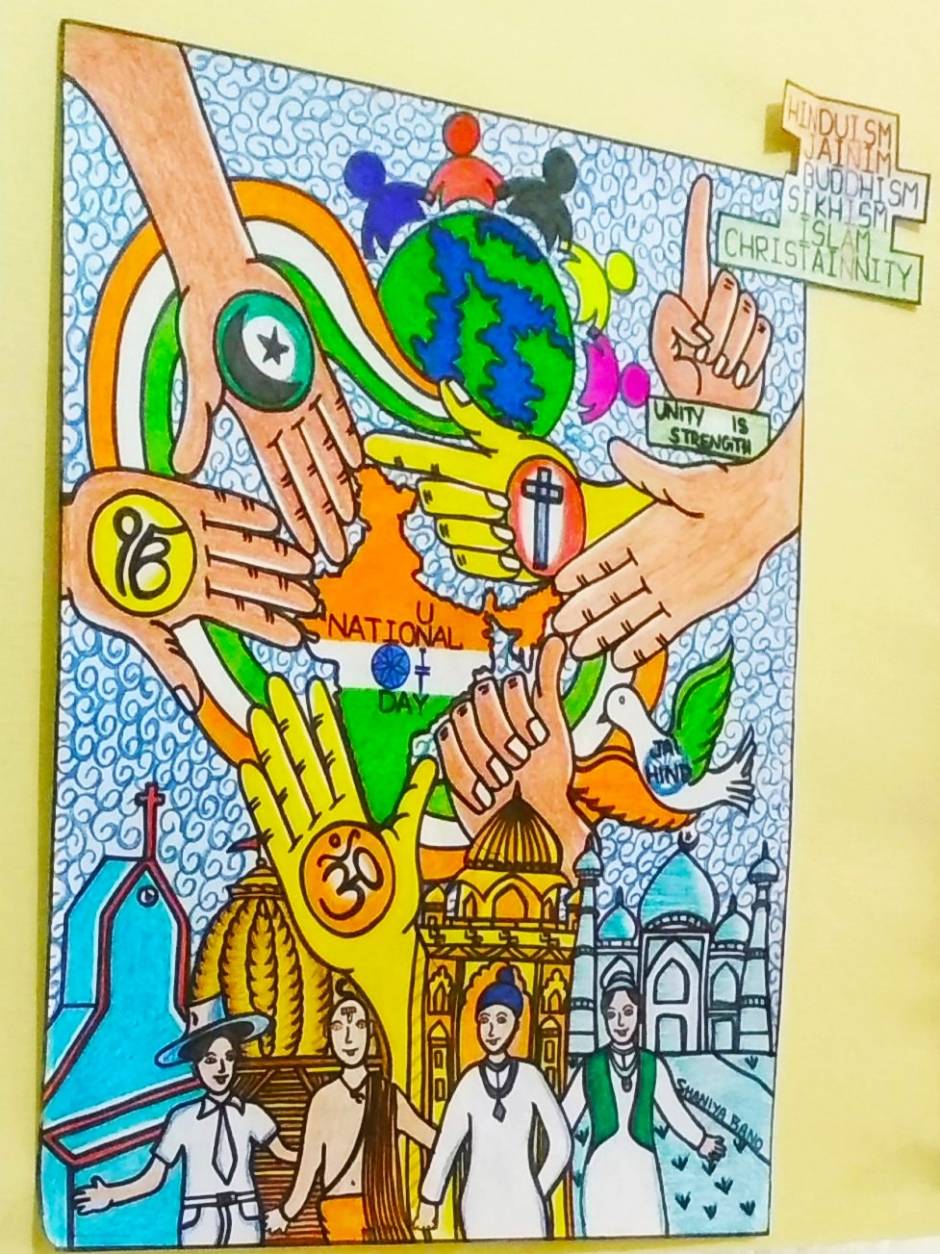The teachings of the Baha’i Faith encapsulate profound principles that resonate universally, with a particular emphasis on unity in diversity and the concept of justice—a duality that plays a critical role in the advancement of society. The Baha’i vision is not merely an idealistic dream; it is a clarion call to action, urging individuals worldwide to cultivate environments enriched by diversity while simultaneously striving for equitable justice. How can one harmoniously integrate these two seemingly intricate concepts into daily life? And what challenges arise in the pursuit of such lofty aspirations? This exploration will delve into these inquiries, encouraging thoughtful reflection and proactive engagement.
At the heart of Baha’i teaching is the principle of unity in diversity. Baha’u’llah, the founder of the Baha’i Faith, articulated that humanity is akin to a single body, where each individual represents a unique, indispensable part. The multiplicity of cultures, languages, and traditions contributes to the richness of the human experience, much like the variegated colors of a vibrant tapestry. However, the real challenge lies in overcoming the tribal instincts that often breed division. Despite the theoretical embrace of diversity, societal structures tend to lean toward homogeneity, cultivating an environment rife with exclusion and prejudice. Consequently, it is imperative to confront the prejudices that persist within communities and to foster an atmosphere where differences are not merely tolerated but celebrated.
To illustrate the essence of unity in diversity, one can ponder the metaphor of a symphony orchestra. Each instrument plays a specific role, producing unique sounds that, when combined, create a harmonious composition. Imagine a scenario where everyone plays the same instrument; the resulting noise would be monotonic and lacking depth. This analogy serves as a reminder that the beauty of humanity lies within its diversity. The Baha’i Faith invites us to engage actively in dialogues that promote understanding and mutual respect, thereby dismantling barriers that inhibit collaboration. This entails recognizing the inherent value in different perspectives and allowing inclusive practices to mold our collective actions.
The notion of justice is intricately connected to the principle of unity. In the Baha’i worldview, justice is not merely a legalistic term confined to courtrooms; it is a vital force that underscores the ethical dimensions of human interactions. Justice requires stakeholders to assess situations fairly, acknowledging and addressing inequalities that marginalize particular groups. Baha’is are called to champion causes that eradicate societal injustices, whether they manifest in economic disparities, gender inequalities, or systemic racism. The establishment of a just society demands that individuals take ownership of their responsibilities and engage in collective action that prioritizes the well-being of all.
However, one might rightly ask: what does it mean to pursue justice in a world rife with social strife and inequity? In these turbulent times, it is easy to become disillusioned, questioning the efficacy of individual action in the face of overwhelming systemic challenges. Yet, history is replete with instances where grassroots movements have catalyzed profound changes. The Baha’i teachings encourage believers to adopt a proactive stance; small, consistent actions can ignite larger transformations. One must embrace the mindset that every contribution, however slightly tangible, has the potential to effectuate a significant impact.
To grasp the significance of one’s contributions, consider the importance of education in promoting justice and unity. The Baha’i perspective posits that education is a universal right; it fosters enlightenment, empowering individuals to play their vital roles in society. Advocating for equitable access to quality education is a direct manifestation of enacting justice while fostering the harmonious coexistence of diverse voices. If we wish to see a world where collective wisdom prevails, we must prioritize educational initiatives that engage all stakeholders, especially the marginalized and underserved.
Furthermore, the practice of consultation is pivotal within Baha’i communities, providing a framework through which collective decision-making is facilitated. This collaborative approach fosters an environment where diverse ideas can converge, leading to holistic solutions to challenges that communities face. By engaging all parties in respectful dialogue, we cultivate a culture of mutual understanding and shared responsibility in addressing the injustices that permeate society. Hence, facilitating open conversations becomes a means of achieving greater unity and justice as warranted by the Baha’i principles.
Moreover, the Baha’i Faith emphasizes the necessity of a global perspective. The world is interlinked, and the principles of unity and justice transcend geographical borders. The challenges confronted by one community are often mirrored in others. In advocating for global collaboration, the Baha’i teachings implore believers to extend their efforts beyond local concerns, recognizing that international cooperation is essential in tackling global injustices such as climate change, poverty, and human rights violations. This provides an opportunity to revisit the question of how we can become effective agents of change in a worldwide context.
The journey towards manifesting unity in diversity and ensuring justice for all is undoubtedly fraught with challenges. Yet, it is within acknowledging these difficulties that we can cultivate resilience and inspiration. To emerge as proactive citizens, individuals must embrace an attitude of lifelong learning, remaining steadfast in the pursuit of understanding and cooperation. Baha’is are called upon to not only foster unity and advocate for justice within their own communities but to do so with a global mindset—a holistic approach that embraces the interconnectedness of humanity.
In conclusion, the Baha’i teachings present a clarion call for every individual to embody the principles of unity in diversity and justice as foundational pillars for a harmonious society. Through active engagement and collaborative efforts, we can address the pressing challenges of our time, fostering environments where every voice is valued and respected. Indeed, the vibrant tapestry of humanity flourishes when woven together, revealing the beauty that lies in our differences. Let this be a commitment not only to aspire for a more just and united world but to actively contribute towards its realization.
